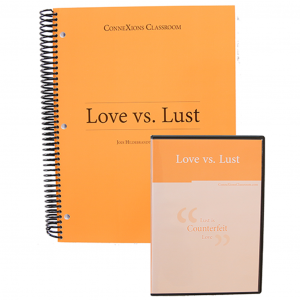Description
Empathy:
is the pure love that heals both the giver and the receiver. Empathizing, or giving empathy, means letting go of one’s own wants, desires, agendas, etc. for a time, and “being there” to witness another person’s pain, understand their story, and feel their emotions with them. Empathy is compassion. Empathy means truly understanding another person, because you feel what they are feeling, without judgment about “how or why they got there.” Empathy is spiritual and emotional medicine. Empathy allows us to heal historical wounds and traumas, and enjoy vitality and happiness where there was pain. The healing balm of empathy requires being emotionally vulnerable and risking within oneself and with another.
Empathy is very different from sympathy; whereas empathy is an emotional process of feeling the other person’s emotions with them, sympathy is only a logical process of merely seeing another person’s emotions and/ or situation. Sympathy does not include either vulnerability or risk, and thus it does not have the healing power empathy possesses.
Vulnerability:
As humans, we live in an inescapable state of vulnerability. We are vulnerable to sickness, aging, death, pain, confusion, sadness, loss, grief, hunger, lack of information, our own poor choices, others’ choices, broken trust, deceit, fraud, violence, disasters, and on and on. The state of vulnerability means we live “out of control”—we cannot control our environments. We cannot even control our own heartbeat!
Acknowledging how vulnerable we are can be very uncomfortable, and therefore we as humans struggle to live in the Reality that we are vulnerable. Instead, we want to feel invincible, powerful, and in-control. So we go towards anything that gives us the illusion of control: gossip, lies, envy, lust, addictions, compulsions, comparison, competition, “being the best,” “keeping up with the Joneses,” manipulation, drama, fantasy, drugs, egotism, lust for money or power, distorted anger, aggression, hatred, violence, war, and anything that gives us the illusion of power. However, the Reality is that, despite all the work we do to escape our vulnerability, we are vulnerable.
When we choose to accept this crucial fact of our existence, we become emotionally open, raw, real, and willing to share ourselves. We admit we are weak, we ask for help, we communicate our emotions, we ask for validation, and we take responsibility for the outcomes of our choices. We accept the Reality as it is. Vulnerability means you are willing to align your choices and your life with the objective Truth and Reality outside of you—regardless of what you want or wish Reality were. Vulnerability requires you to risk emotionally—to put yourself in a position where you will experience pain, upset and discomfort. Accepting your vulnerability creates peace, stability, and faith to face the Reality of your life. Vulnerability is connection and freedom.
Validation:
is the true love of God. Validation means being present (emotionally, spiritually, physically) with another (and/or with myself). It means I’m open and sincere about my desire to see, hear, witness, understand and be with you (and therefore me). Validation is saying to another (or myself): “I see you and I want you to know that I see you, and I want to know more about you, and to better understand you!”
Validation requires a willingness on my part to “be” vulnerable—to accept whatever is going on in the Reality with myself and another, regardless of the comfort or discomfort of Reality. Validation is connection!
Truths About Validation:
Validation is confirmation that your worth is independent of anything you think, feel or do, or anything that has been done unto you!
Validation from another creates safety to explore your distorted thoughts and the false beliefs that nourish them. Validation creates the safety you need to expose distorted thoughts & false beliefs to Truth that replaces them.
When you feel deeply validated, you will invite others to support you in your choice to be humble, impeccably honest and rigorously responsible.
Resistance to validation is evidence of distorted thoughts & false beliefs.
Validation is not permission for what you did. It is confirmation of who you are.
When you validate, you acknowledge that others’ feelings exist, and you stand compassionately with the person who is experiencing them.
The only way to close the gap between how you really feel and how you wish you felt is to seek validation of who you really are.
A powerful way to validate is to be curious about another person, their experiences, and their emotions.
Examples of Validating Statements:
“Help me understand what you mean / think / how you feel.”
“What I heard you say was…” (use their language and their meaning—not yours; don’t paraphrase it).
“I’m not sure what you mean. Tell me again.”
“I want to hear you. You matter to me.”
“You are so… talented at what you do.”
“I didn’t hear you and I want to.”
“I’m struggling because I don’t agree AND I understand and want you to know I’m here.”
“How can I support you?”
“What can I do to let you know I’m present?”
“How did you do that? What happened? How did/do you feel about it? What are you going to do? Do you want some suggestions? Feedback?”
“I know when I think / feel / experience…”
“I understand…”
“It’s uncomfortable to share with you because you appear to…”
“I want to tell you the Truth AND are you willing to hear me?”
“I get scared and overreact too.”
“I too.”
“I totally appreciate why you…”
“It makes sense when you…”
“Aww, that is so upsetting when… that happens.”
“Tell me more about it.”
“What an opportunity…”
“You are so fortunate to…”
“It’s important that I understand you.”
Validation is a self-less gift you give to yourself and others by seeing / witnessing the emotions / experiences of the person. It is powerful spiritual medicine that reminds us we are important, worthy, seen and understood—as spiritual beings. Validation is charity.
Risking:
means being emotionally open, raw, honest, real, vulnerable and validating with another person. Emotional risk is the act of accepting / embracing your vulnerability—of being willing to expose yourself emotionally to another person. Being open is “risky” because you have no control over the other person’s reaction / response. You are willing to acknowledge—and accept when appropriate—the other person’s response or reaction, and not take it personally (go into distortion) if their reaction is unexpected, uncomfortable, aggressive, or otherwise disconnected / distorted. When you risk, there is the possibility of suffering pain, discomfort, and loss.
If risk involves the possibility of pain and loss, why is it desirable or necessary? The PURPOSE of risk is to create a vulnerable / intimate relationship. There is only one way to create intimacy: both people in the relationship must risk emotionally by being open / vulnerable and validating.
Risking emotionally is an act of personal responsibility and maturity. It says, “I know myself, I know how to take responsibility for my feelings and choices, and I know how to hold boundaries, and therefore, I am willing to invite you into my life without expectations—without wanting benefits, compensation, “fairness,” perks, payback, or ANYTHING from you, except your honesty and vulnerability with me.” Emotional risk is a gift you give yourself and another person.
If you choose to be in an intimate relationship (such as a marriage), you have a RESPONSIBILITY to risk. If you are involved in any relationship where emotional intimacy is expected, you need to check yourself and make sure that you are showing up in a vulnerable, validating, emotionally risking position. In other words, you don’t get to just “take” sex, physical touch, validation, etc. from the relationship—you are responsible to return the same. Avoiding vulnerability inside of a relationship where intimacy is expected is irresponsible, dishonest and selfish, because you are “using” or “sucking on” the other person’s emotional risking and vulnerability, without giving back to the relationship dynamic. The other person will feel used. Oftentimes, the person will feel as though they are “parenting.” Your pattern of unwillingness to risk / be vulnerable will create incredible conflict inside the relationship, and if not changed, will ultimately dissolve all intimacy in the relationship. If you choose not to exemplify emotional honesty, humility, vulnerability, validation, openness and risk, you are not entitled to someone risking with you—whether you are in a marriage or any other relationship! The unwillingness to risk and be vulnerable is the reason people “fall out of love.” That is the gravity and importance of being willing to risk in your relationships.
To risk in healthy ways, you must create boundaries around yourself regarding the behaviors and attitudes you will and will not permit around you and in the intimate areas of your life. By creating and holding boundaries, you will be able to risk appropriately and with safe, healthy and responsible people, which will enable you to create intimate and deep relationships.




Reviews
There are no reviews yet.